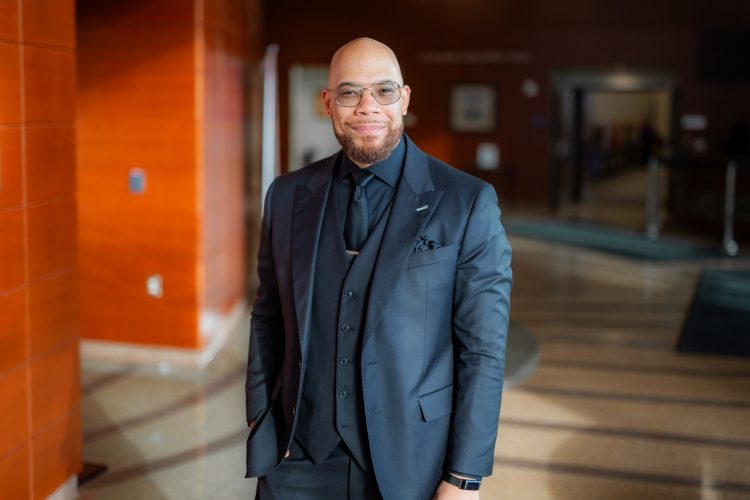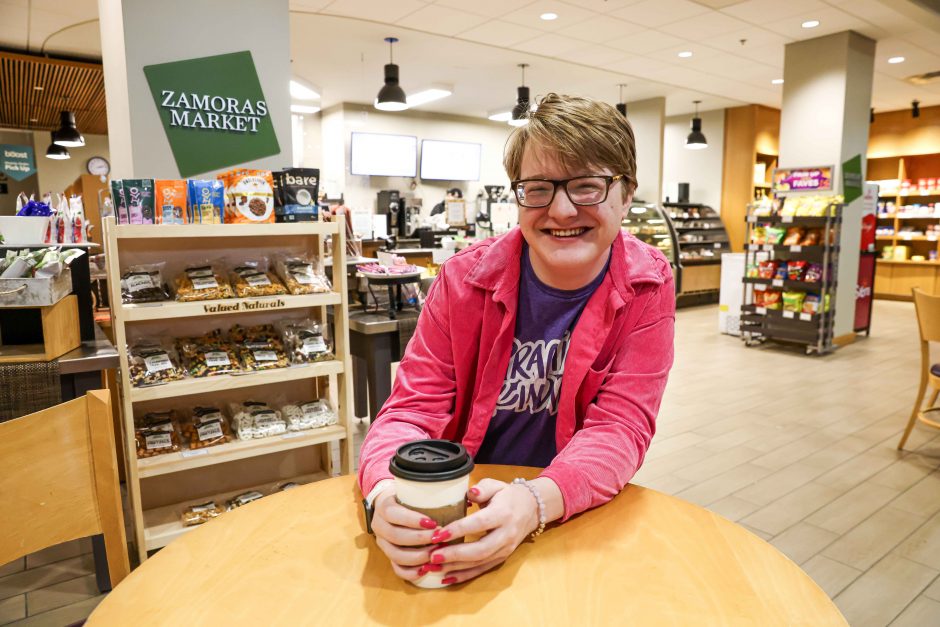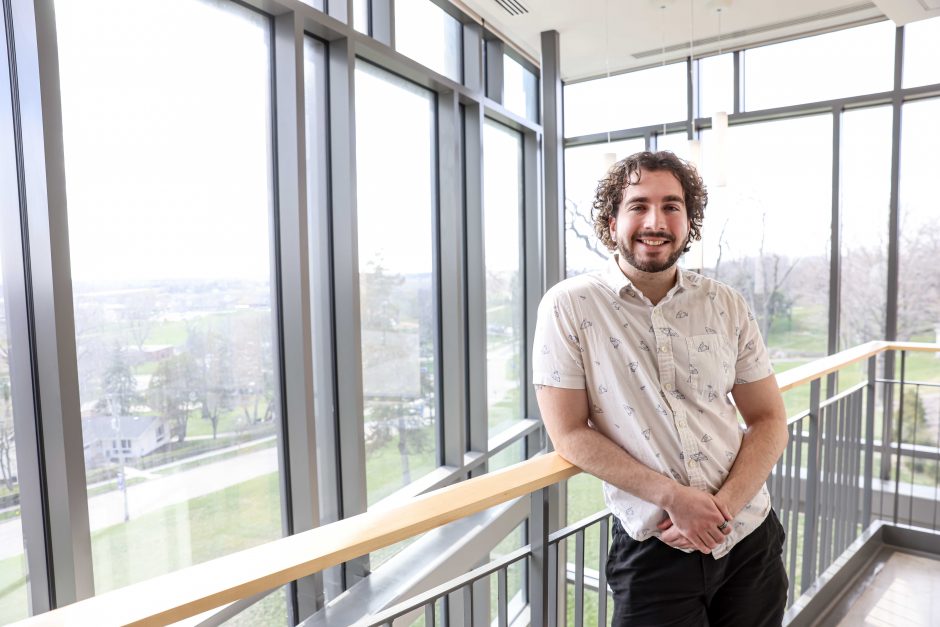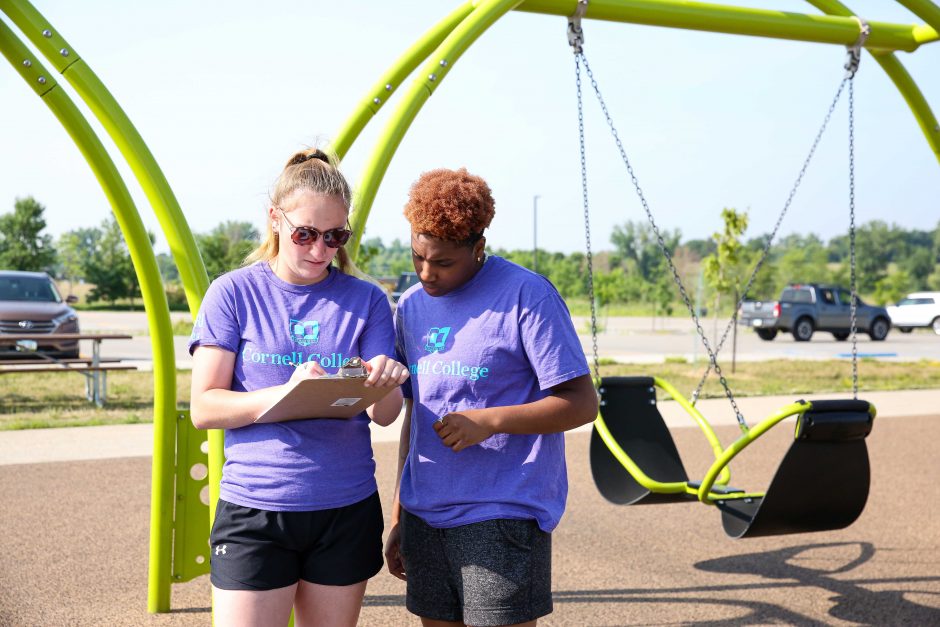You Said: Spring 2024

Well Said
“Identify someone who can be your coach who is not connected to your business. Everyone needs a coach they can call anytime.”
Darius Ballard ’07, chief human resource officer, Cedar Rapids Community School District, speaking at a Berry Career Institute Community Leadership Panel on campus
‘18 things’ provided understanding
Thank you for the understanding and scope provided by your collection of block course descriptions in the article “18 things we did in 18 days.” It was both an interesting and an important article for me to read as an alum coming from the days of the semester system at Cornell. I really enjoyed reading about the kinds of studies students are involved in at Cornell today!
Carol Parish Compton ’61
Madison, Wisconsin
Where’s Milhauser when you need him?
I’m reading the article about historic buildings and find this: “From 1976–1989 Pauley was the Women’s Academic Residence, a counterpart to the Men’s Academic Residence in Altoona Hall (which moved to Rorem in 1984).”
When I was there from 1980–1984, Altoona was a vacant building and I’m quite sure Rorem was already the academic residence. Where’s Milhauser when you need him?
Bart Schaefer ’84
Novato, California
EDITOR’S NOTE: You are correct, Bart, and I should have consulted the late Registrar and Professor Emeritus of Classics Charles Milhauser’s old catalogs as they hold the answer: From 1977 to 1984 Rorem was the Men’s Academic Residence. In 1984 it became a coeducational residence hall and in 1996 returned to its original status as a men’s hall. Rorem now houses first-year students.
More than a job
The article “More than a job” in the fall 2023 Cornell Report brought back wonderful memories about how my Cornell work-study job changed my direction in life, even if my major in biology remained the same.
I recently retired from a truly rewarding career at the University of Iowa as the assistant provost and director of student financial aid. I cannot imagine a better career than one in which I was able to help others reach their educational goals as Cornell did for me. I entered Cornell in the fall of 1977 intending to become a medical technologist. Through my job in Admissions, I discovered a world of career options in higher education. I loved the opportunity to share my amazing experience at Cornell with prospective students and their parents. My time at Cornell was made possible through generous grants and scholarships from the college and federal financial aid programs. Through my work-study job and my time in the classroom, I honed my written and verbal communication skills, developed the skills to research and analyze information, and to think critically. Having a job provided me with another community on campus and a way to fit in. Coming from northwest Iowa and a small high school, along with being a first-generation student, Cornell felt a long way from home for me and my job helped ease that transition.
Your article was right on the mark; employment is so much more than a paycheck. Thank you for highlighting the wonderful benefits of student employment.
Cindy Timmerman Seyfer ’81
Iowa City, Iowa
Block plan came alive
Reading the Cornell Report about what was learned and experienced in 18 days was exciting, fascinating, and made me want to go back to Cornell to try it out! Fifty years ago when I attended, it wasn’t possible. Thanks for bringing this alive for me.
I was also so touched and impressed by the “I See You” issue in 2021.
Pam Rechel ’72
Portland, Oregon
Rooted in the humanities
At root, the humanities are all about the study of knowledge and its structures, the ways in which knowledge is transferred between generations, and how that knowledge both reflects and shapes us as human beings. As alumni of Cornell College’s broad liberal arts approach to holistic learning, we are grateful that the college has always nurtured diverse perspectives rooted in the humanities. By our count, almost 40% of the courses featured in the “18 things we did in 18 days” article in the fall 2023 Cornell Report are humanities courses—and many of the non-humanities courses had strong humanities components to them.
No single discipline or even single approach to thought has wisdom enough to address the complex problems of the contemporary world. And so, during a time when we are grappling with the consequences of social media, artificial intelligence, and toxic political division, we only need look at how leaders in these fields are struggling to address the ill effects of what they produce to grasp the perils of ignoring the humanities. An in-depth study of Gutenberg and the power of communication tools to upend and transform society; of Prometheus and the various ways that technologies can both serve and undermine humanity; and of Machiavelli, Sun Tzu, and how political strategies can bring down kingdoms, are just a start toward understanding what is truly at stake for humanity’s future.
Yet the media is full of stories about colleges and universities abandoning their humanities curriculums. Even putting aside studies that suggest that humanities majors make more money over the course of their lives than their STEM counterparts because they tend to possess the people skills to go into management, we are encouraged to know that the humanities are alive and well at Cornell College.
Anthony Vaver ’88
Westborough, Massachusetts
David Syring ’89
Duluth, Minnesota
Addendum
Former Associate Dean of Students Robin Reid, whose obituary appeared in the fall 2023 issue, was an honorary alumnus of Cornell.
Be part of the conversation
We are delighted to publish letters and social media mentions. Tag @cornellcollege to be considered on social media. Send letters to cornellreport@cornellcollege.edu or Cornell Report, Box 1648, 600 First St. SW, Mount Vernon, IA 52314-1098. Submissions are edited for style, length, and clarity.



